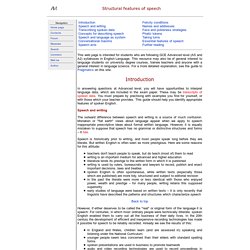

Time to say goodbye? Calls rarely end when we want them to, study finds. So you just called to say “I love you”, but how long should you stay on the phone?

New research suggests no matter who we’re talking to, or what we’re talking about, conversations rarely conclude when the two individuals want them to end. With worrying rates of loneliness and a pandemic that has relegated large swathes of the population to long periods of social isolation, making and maintaining connections has become increasingly crucial. Researchers from the US analysed nearly a thousand conversations between family and friends and between strangers, and found that regardless of whether it is a brief chat or a lengthy discussion, and whether the content constitutes banter or debate, when two humans talk, one almost always wants to stop talking before the other one does. Real Talk. Priti Patel - latest news, breaking stories and comment - The Independent.
How the internet is changing language as we know it (ikr lol) How the language we use entrenches inequalities. The rhetoric surrounding the UK’s exit from the EU has become increasingly inflammatory.

Real-time #ElectionLeaflet monitoring. Princess, love, girl – when is a term of endearment not welcome? When I think of Paul Hollywood, TV’s floury-haired fox and staunch upholder of a strong crumb, I think of a man who only ever seems to be one pint of bitter away from turning into your dad hitting the dancefloor at the end of a very long wedding.

The Bake Off judge has been all over the tabloids this week – happily, not for wearing a Nazi uniform as fancy dress this time (it was an ’Allo ’Allo! -themed night and he’s sorry, OK) – but it was one particular answer in one particular interview that raised the bristles on my broad, lefty, feminista chest. You’ll remember that when the Bake Off moved to Channel 4, Hollywood was the only original host to stay with the programme, and for a while, he says, this made him the most hated man in the country.
In his defence, he told the Radio Times this week: “I stayed with Bake Off. Trump’s rhetoric: a triumph of inarticulacy. ‘It’s all fake news, it’s phoney stuff – it didn’t happen … I think we have one of the great cabinets ever put together … Don’t be rude.

Don’t be rude. Don’t. Be. EngLangBlog. Grammar for Schools.
YouTube - Broadcast Yourself. John McWhorter: Txtng is killing language. JK!!! Why are white people expats when the rest of us are immigrants? In the lexicon of human migration there are still hierarchical words, created with the purpose of putting white people above everyone else.

The battle over the words used to describe migrants - BBC News. Images of people scrambling over barbed wire fences in Calais or crossing the Mediterranean in fishing boats have dominated the media over the last few months.

And a debate has even emerged about the very words used to describe people. The word migrant is defined in Oxford English Dictionary as "one who moves, either temporarily or permanently, from one place, area, or country of residence to another". Language in Conflict - How people present the world through language. This section introduces a variety of tools of analysis commonly used in linguistics.

Each tool is commonly used by linguists to help understand how people present the world through language - how do we refer to the world around us? , how do we represent relationships between people and things? , how do we draw on our experience of one thing to describe another? Each tool is introduced and illustrated with examples from everyday life, the media and conflict situations. The 'Spotting' boxes in each article also suggest where in everyday life you might be able to spot these interesting features of language! An understanding of the tools in this section can enhance our understanding of language in conflict. Department of Linguistics. Some general features of spoken English.

Language in Conflict - How language works. Department of Linguistics. English Grammar: a complete guide. Do you have a question about the correct usage of the semicolon or how to place adverbs in a sentence?

If so, you've come to the right place. Edufind.com is a complete English grammar guide filled with the rules of English usage. Each grammatical rule is explained in plain English with several examples, and when needed, counter-examples. The grammatical rules covered by this guide are categorized below. English grammar is not always easy to understand, but by using this guide you should be able to remind yourself of the rules of English usage and speak or write English with confidence. Nouns. Guide to Punctuation. Structure of speech. This web page is intended for students who are following GCE Advanced level (AS and A2) syllabuses in English Language.

This resource may also be of general interest to language students on university degree courses, trainee teachers and anyone with a general interest in language science. For a more detailed explanation, see the guide to Pragmatics on this site. Introduction In answering questions at Advanced level, you will have opportunities to interpret language data, which are included in the exam paper. The politics of UK newspapers. Why do politicians speak the way they do? 13 February 2015Last updated at 23:00 ET Election mania is just around the corner, with politicians making their pitches for the public's votes. What are the techniques they use to try and snare people's attention, asks David Stenhouse.
Linguistics Research Digest: "Uh-huh. Mhm. Wow": How Backchannels influence the Story. When we hear someone telling a story or narrating an event, it is not uncommon to hear listeners responding with mhm, uh-huh, wow, oh, and the like. At face value, these words or short phrases may not seem to contribute to the conversation. Sure, they indicate attention and agreement, but how much do they actually influence the story being told? In a recent study on such responses, researchers Jackson Tolin and Jean E. Rhetoric. Rhetoric Rhetoric is the study of effective speaking and writing. Verbtenses usage. Recommended Teachers' Resources. This site exists to support students and teachers of English A Level, especially English Language. Copyright Beth Kemp 2005-present. Text from this site may not be copied for commercial gain, although you are free to use for study purposes.
If you teach English Language A Level, I’d recommend the following online resources: Membership of the English Language List (found under ‘subscriptions’ on this site) This email list is where teachers of A Level Language share resources and discuss aspects of the course. The relatively new site The Grammar Teacher, maintained by Dick Hudson and Geoff Dean has lots of helpful (and recent and positive) material about grammar. Membership of Teachit - especially the now-included Language SputnikSubscription to Emagazine and EMC Extra Emag is a fantastic magazine for sixth form students of English (all varieties!) As for books: Acronyms and initialisms: what’s the difference?